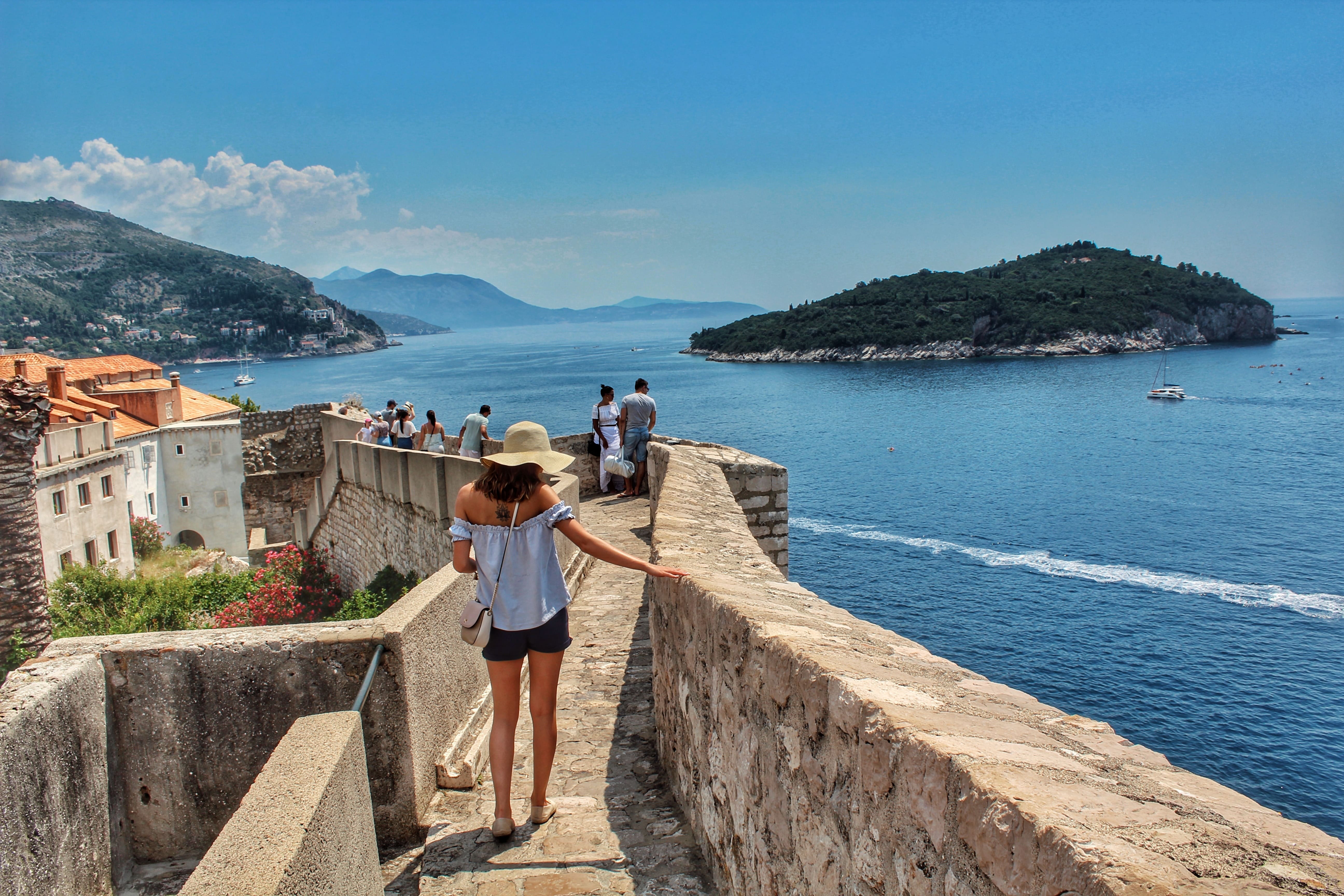Croatia EOR & PEO services
Croatia offers a diverse range of PEO/EOR employment opportunities, attracting both domestic and international talent to contribute to its thriving workforce.
.jpg?width=5464&height=3640&name=croatia%201-min%20(38).jpg)
Employment contracts through EOR/PEO Croatia
In Croatia, there are two types of employment contracts: permanent employment without the agreed end date and temporary employment. It's quite usual to have a defined probationary period for both types of contracts.
The Croatia EOR/PEO employer can renew the temporary contract several times, but the prolongment in total cannot last longer than three years. After three years of renewal, the employer must provide a permanent employment contract.
Croatia PEO/EOR employment termination and notice period
In Croatia, the provisions of the Labour Act stipulate that both the employer and worker may terminate the employment contract. The PEO/EOR employer in Croatia may terminate the employment contract based on the stipulated or agreed notice period if there is a justified reason to do so. This type of ordinary dismissal can happen in case of a:
- business-related dismissal (if the need for a specific job ceases due to some technical, economic or organizational reasons);
- dismissal on personal grounds (the employee is not able to perform properly due to some permanent abilities or characteristics);
- dismissal due to dissatisfaction with probation work (the employee simply did not perform well during the probationary period).
The employee can terminate the employment contract in line with the agreed notice period without stating specific reasons.
The termination period can vary between two weeks for employees who have worked for less than one year to three months for employees who have been employed for 20 consecutive years. The termination period starts on the date of delivering the notice of termination of the employment contract.

Croatia EOR/PEO employment: Salary, employer costs and working hours
In 2022, the average annual wage in Croatia was $16.381,00. This is much lower than the average annual wage in the United States: $53.490,00.
As a PEO/EOR employer in Croatia, the actual employer costs are 16.50% higher than the gross annual salary, as we have seen in the social contribution in Croatia. Based on a $16,981 annual salary, the employment costs would be $19.002,75.
See all average salaries in Europe in 2022
The standard working week in Croatia is 8 hours per day, 40 hours per week. In some cases, if an extraordinary increase in the scope of work happens where an employee has to work longer hours at the employer’s request, the total duration of hours can be extended up to 50 hours per week.
In total, the overtime work for the employee must not exceed 180 hours per year unless an agreement has been made between the employer and employee in the form of a collective agreement. In that case, the total amount of working hours cannot exceed 250 hours per year. For every hour of performed overtime work, the employee is entitled to get an overtime compensation rate, as stipulated in the employment contract or collective agreement.
If an employee works at least 6 hours per day, he has the right to have a minimum break of 30 minutes during working hours unless otherwise stipulated by special law.
-min.jpg?width=6006&height=3859&name=croatia%203%20(1)-min.jpg)
Paid vacation leave and public holidays in Croatia EOR/PEO employment
Every employee is entitled to an annual holiday of a minimum of 4 working weeks per year (20 days), which can be used after 6 consecutive months of working for people employed for the first time. Paid vacation days can be used all at once or distributed as per employee's preferences during the year.
Apart from that, an employee also has the right to use up to 7 days leave per year for important personal events (e.g. marriage or death of a close family member).
In Croatia, there are 14 public holidays considered non-working days:
- New Year's Day – 1 January
- Epiphany – 6 January
- Easter Sunday – 31 March
- Easter Monday – 1 April
- Labour Day – 1 May
- Statehood Day – 30 May
- Corpus Christi – 30 May
- Anti-Fascist Resistance Day – 22 June
- Victory and Homeland Thanksgiving Day – 5 August
- Assumption of Mary – 15 August
- All Saints' Day – 1 November
- Remembrance Day – 18 November
- Christmas Day – 25 December
- St. Stephen's Day – 26 December
Add 2024 Croatia public holidays to your calendar
.jpg?width=3880&height=2587&name=croatia%204-min%20(1).jpg)
Maternity and paternity leave through PEO/EOR in Croatia
In Croatia, every pregnant employee is entitled to 28 days of paid maternity leave (rodilji dopust) before the due date. That number can increase to 45 days in some special circumstances.
After giving birth to a child, the employee has the right to take up to 70 additional days of mandatory paid maternity leave. After 70 days, there is an option for an employee to take additional unpaid maternity leave until the child is six months old. It's quite usual that the employer pays for those additional days and offers that as an additional benefit to the employee.
A statutory paternity leave doesn't exist in Croatia. But, in some cases, if a mother is not able to take care of the child in the first 70 days of mandatory maternity leave, a father can take over those days as paternity leave. Mother can also, after the 70th day after birth, transfer the remaining leave fully or partially to the father.
Each parent is entitled to parental leave (roditeljski dopust) of 8 months for a first and second child and up to 30 months for twins, third and every subsequent child. Parents may use the parental leave by the time the child turns eight. Usually, in Croatia, both parents are using parental leave, and each of the parents can take 4 or 15 months (depending on the number of children born).
Find out everything you need to know about Maternity leave in other European countries.
Social Security tax for Croatia EOR/PEO employers
In Croatia, the gross salary of an employee includes compulsory social security contributions (pension and disability insurance, health insurance and contribution for unemployment insurance). Upon signing the employment contract, social security contributions are automatically calculated and paid for as a part of payrolling, which provides further unemployment, health insurance and social coverage to employees and Croatian citizens.
What are the primary social security contributions in Croatia? And more importantly, what is the amount of the social security contribution that is accounted to the Croatia EOR/PEO employer?
Every employee in Croatia has to pay social security contributions, which are actually pension contributions levied at the rate of 20% (15% I. Pillar payments stipulated by the government for pensions of all currently retired citizens, and 5% II. Pillar payments for the future pension of the employee).
The basis for the payment of 20% is the gross salary of the employee, also known as "gross I salary", capped at the following values:
- HRK* 55,086 monthly cap, approx. $8,475 (applicable for both I. and II. Pillar payments in case of salary)
- HRK 661,032 annual cap, approx. $101,687.84 (applicable for I. Pillar payments irrespective of whether the payment is salary or other types of remuneration)
Additionally, the employer must pay contributions towards basic state health insurance and basic accident insurance, which is 16.50% of the gross I salary. This is the so-called "gross II salary" or total cost for the employer.
The employer is obliged to calculate, retain and pay these benefits on behalf of the employee.
To learn more about the social security tax in Europe, we invite you to read this article on Social Security Tax Rates for Employers Across Europe.
* Starting January 2023, the official currency in Croatia is the Euro (EUR). Prior to this change, the official currency was the Croatian Kuna (HRK).
We know European markets
Europe is home to a diverse range of countries, each with its unique employment characteristics. These reflect the diverse economic and cultural landscapes across the continent.
Contact us
Get in touch with our team of experts to identify the best PEO and EOR solutions for your needs in Croatia today. Our HR Outsourcing services provide you with the right helping hand to enable you to grow.

Monique Ramondt-Sanders
CCO & VP of HR Outsourcing



.jpg?)